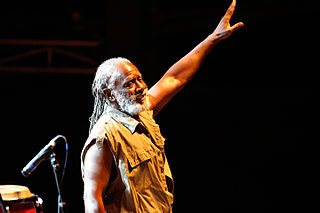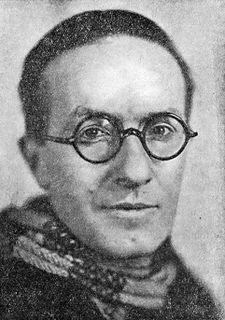A Quote by T. S. Eliot
Of lovers whose bodies smell of each other Who think the same thoughts without need of speech
Related Quotes
In the case of two actors connecting with each other and trusting each other, our bodies have memories without us having to consciously think about it, so rather than think, "Oh, I must think about my daughter dying," you just let that go and trust that you have all the emotions you need in there, and by losing yourself in the scene, that stuff kicks in without having to spend the day thinking about horrific things happening to your own child.
If we were all given by magic the power to read each other’s thoughts, I suppose the first effect would be almost all friendships would be dissolved; the second effect, however, might be excellent, for a world without any friends would be felt to be intolerable, and we should learn to like each other without needing a veil of illusion to conceal from ourselves that we did not think each other absolutely perfect.
We need each other to do things that we can't do for ourselves. If we are intimately connected with each other, we just give things to each other; if we don't know each other we find another way to handle it. If you think about it, each according to his or her abilities and each according to his or her needs is sort of the same thing as supply and demand.
You need response from the fan to fuel your sense of musical rebellion. It's very symbiotic, it's very cyclic in a way. You can't have one without the other. So I think the rebellion is reflected in the audience, but at the same time, the artist has to have that passion too. And I think once you're a fan for life, you feed each other's sense of passion and rage and whatnot. You really can't have one without the other.
Budapest in late May is a city of lilacs. The sweet, languid, rather sleepy smell of lilacs wafts everywhere. And it is a city of lovers, many of them quite middle-aged. Walking with their arms around each other, embracing and kissing on park benches. A sensuousness very much bound up (it seems to me) with the heady ubiquitous smell of lilacs.
Born enemies don't fight. Nations you would say were designed to go to war against each other by their skins, their language, their smell; always jealous of each other, always hating each other; they're not the ones who fight. You will find the real antagonists in nations fate has groomed and made ready for the same war.
Think of two people, living together day after day, year after year, in this small space, standing elbow to elbow cooking at the same small stove, squeezing past each other on the narrow stairs, shaving in front of the same small bathroom mirror, constantly jogging, jostling, bumping against each other’s bodies by mistake or on purpose, sensually, aggressively, awkwardly, impatiently, in rage or in love – think what deep though invisible tracks they must leave, everywhere, behind them!
The great pines stand at a considerable distance from each other. Each tree grows alone, murmurs alone, thinks alone. They do notintrude upon each other. The Navajos are not much in the habit of giving or of asking help. Their language is not a communicative one, and they never attempt an interchange of personality in speech. Over their forests there is the same inexorable reserve. Each tree has its exalted power to bear.
All lovers in the world are alike: they fall in love by chance; they see each other, and are attached to each other by the features of their faces; they illuminate each other by the fierce preference which is akin to madness; they assert the reality of illusions; and for a moment they change falsehood into truth.
These glorious things-words-are man's right alone...Without words we should know no more of each other's hearts and thoughts than the dog knows of his fellow dog....for, if you will consider, you always think to yourself in words, though you do not speak them aloud; and without them all our thoughts would be mere blind longings, feelings which we could not understand ourselves.






































